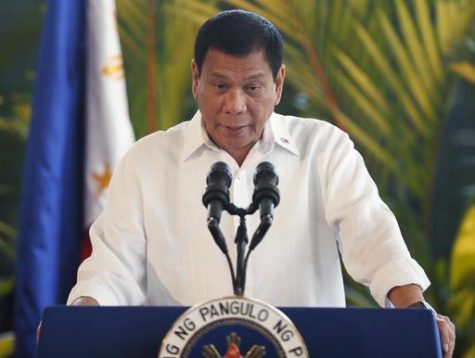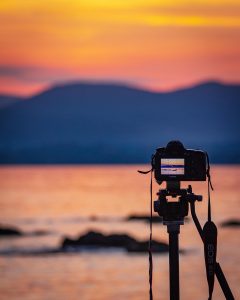Drug war escalates in Philippines
November 3, 2016
Vigilante mobs rule the streets, with extrajudicial killings becoming a daily occurrence.
This is not a war torn country, but rather the Republic of Philippines. On May 9th, 2016, the citizens of the democratic republic elected Rodrigo Duterte to the office of the country’s presidency. Duterte promised voters a strict enforcement of drug laws in order to curb Phillipines increasing drug issues and to stamp out corruption within the government. Soon after being elected, Duterte implemented policies to combat the issues, and encouraged citizens to murder illegal drug dealers and addicts.

In the years leading up to the 2016 election, Filipinos had been subject to a slew of government corruption cases. Politics in the Philippines has historically been based upon the “Padrino system,” which involves the rampant exchange of favors as well as nepotism in order to climb the political ranks.
The most recent major scandal within the Philippines was the “Pork Barrel Scam.” Allegations against several congressman arose in 2013 regarding their spending of national funds designated for local development projects. Over the course of the investigation into these claims, it was revealed that approximately 10 billion pesos (~$208 million USD) in government funds were lost due to fraudulent schemes.
After being plagued by scandals and a culture of corruption, citizens slowly adopted increasingly anti-establishment rhetoric. This rhetoric eventually culminated in the candidacy of Rodrigo Duterte.
Duterte began his political career as Mayor of Davao City, which he remained for 22 years. According to CNN, there are several existing claims which tie Duterte to the vigilante “Davao Death Squad” which has executed hundreds of Filipinos without due process of law.
In 2015, Duterte had indicated that he may run for President in the 2016 election. By November, Duterte replaced the nominee for PDP-Laban, a major left-leaning party in the Phillipines, and was on the ballot for May.
Duterte led early polls, with nearly one in three Filipinos stating that they would vote for him in the election. Early support was primarily based upon his anti-crime and anti-corruption policies.
Despite formidable opponents as well as several controversies in the weeks before the election, opinion polling for the election showed Duterte with a lead, projecting him to win a plurality of voters.
Election Day ascended Duterte to the presidency of the Philippines, with him garnering a nearly 40% plurality as well as a commanding 15+ point lead over his nearest opponent.
According to The Washington Post, Duterte immediately initiated the Drug War the country is currently in. He also has since drawn criticisms for his authoritarian tendencies as well as human rights violations committed under his government.
Despite criticism of his presidency, Duterte continues to attain an extremely high level of support among Filipinos.
While the long term affects of his presidency have yet to be determined, Rodrigo Duterte has undoubtedly altered the political landscape of the Philippines for years to come.





